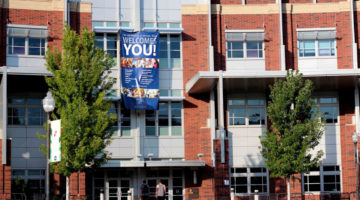By Jack Rieger
Nevada baseball was the most talented team at the university this past season. If you don’t believe me I completely understand; the baseball team didn’t receive nearly the same media coverage or acclaim as the highly celebrated football team (finished 7-6) or the underachieving basketball team (finished 9-22.) Nevada baseball finished their 2014-2015 season with 41 wins and 15 losses, and sent 5 players to the pros. Not bad for a team playing their home games in a park that holds just 3,000 people; a park they sold out for the first time since its construction in 1988.
Exactly how does the Nevada baseball team outperform the more financially supported football and basketball teams on their own campus? It helps when your starting first baseman led the conference in on base percentage (.506), home runs (14) and was fourth in RBIs (52.) That man is Austin Byler, who was selected in round 11 of this years MLB draft by the Arizona Diamondbacks, his hometown team.
According to Don Marchand, the play-by-play announcer for Nevada who has been around the team for 23 years, Byler’s ability to get on base consistently is what separates him from other good hitters.
“His on base percentage is phenomenal,” Marchand said. “Everyone wants to look at Austin’s home run numbers because he’s built like a home run hitter. He was in the top two or three in the Mountain West Conference in walks, hits by pitch, and on base percentage. Any pro scout will tell you there’s a place on our team for you if you can get on base.”
Byler’s knack for reaching base has continued to flourish since signing with the Diamondbacks organization. In 50 games with the Diamondbacks’ rookie team, Byler has reached base 46 percent of the time and has almost as many walks as strikeouts. In other words, he has exceptional plate discipline. He’s hitting home runs at a higher rate in the minor leagues than he did in college, with 13 long balls in just 50 games. On Aug. 9, Byler went 4-5 with three home runs and began a streak of four straight games with at least one home run.
After his junior season, the Washington Nationals drafted Byler in the ninth round of the MLB draft. He declined that offer and chose to remain in school in order to compete for a conference title and consequentially dropped to the 11th round after his senior year. The reason for Byler slipping in the draft wasn’t because of his performance; it was because he lost his bargaining power with the team that was going to draft him. He could no longer leverage his option to go back to school in negotiations with teams; Byler would be forced to sign with whichever team selected him. Many athletes have used falling in the draft as extra motivation, but Byler says that motivation is not something he lacks.
“I’ve always been motivated,” Byler said. “I have a lot of self-motivation, and that’s what you need to be the best player you can be. If I continue to have that and work hard and try and improve every day, everything will take care of itself.”
Byler’s relentless work ethic has aided his progression as an offensive leader for his team, the Missoula Osprey. The talented rookie leads his team in home runs, RBIs, doubles, runs, walks and, of course, on base percentage. Soon enough Byler will be called up to the next level of the Diamondbacks organization.
Byler has a very long road ahead of him before the major leagues are in sight, but his work ethic and patience at the plate are skills that translate at every level. Marchand is certainly a believer in Byler’s ability to reach the Diamondbacks.
“From an overall package, I think [Byler] has the skills to make it to the big leagues someday,” Marchand said. “I absolutely believe it.”
Jack Rieger can be reached at jrieger@ sagebrush.unr.edu and on Twitter @JackRieger












